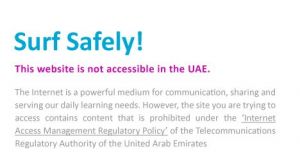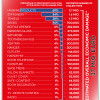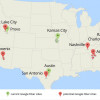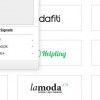
Mathias Döpfner, CEO at Axel Springer: 'Break up Google'-thesis brings international Stir
He says out loud what small and big publishers as well as e-commerce providers alike don’t dare to say in public: Is the US monster Google going to devour its own children? Others wonder if Google is turning to some kind of worldwide Hugenberg. Alfred Hugenberg was the central media mogul in the Third Reich under Adolf Hitler ("Drittes Deutsches Reich2). He commanded huge parts of the newspaper landscape and controlled everything about the media but he also helped to bury democracy in Germany.
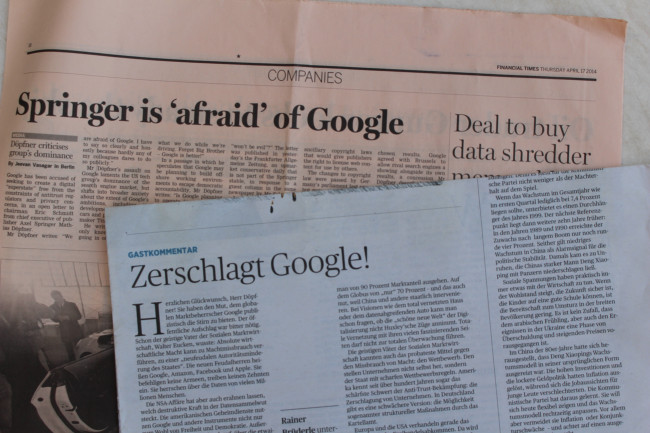
German publishers are afraid of the almighty American internet monopolist Google, says Mathias Döpfner, CEO of the once almighty German newspaper giant Axel Springer (publisher of national dailies Bild or ‘Die Welt’) in daily newspaper Frankfurter Allgemeine Zeitung (FAZ).
If that’s not enough, Axel Springer SE’s CEO also mentioned casually that he could imagine politicians asking for Google’s breakup, the mightiest media master on the globe, if Google doesn’t tame itself.
What Döpfner finds the courage to say has been on the mind of the entire German internet scene for years: Google has too much power. A look at the international press shows that Döpfner’s comments cause a stir not only in Germany but worldwide.
For the English financial newspaper Financial Times (FT), those news were worth the entirety of six columns at the top of page 17 on April 17 in bold print: "Springer is ‘afraid’ of Google." Be it FT or the Indian Times – numerous different media around the globe picked up on Döpfner’s attack, the CEO of a company which, at least as a publisher, is still quite powerful in Germany.
Coincidence or not? On April 17 as well, Germany’s leading financial newspaper, Handelsblatt, published an article with the headline "Zerschlagt Google!" (Break up Google!). The article was indicated as a guest contribution, whose author was nobody less than Rainer Brüderle, who was the chairman of the party FDP faction in the German Bundestag for years, the German national parliament in Berlin.
In the Handelsblatt, he congratulated Döpfner for being courageous enough to confront the global market master Google in the media. The public confrontation had long been overdue, he continued. Rainer Brüderle finished his commentary by saying that the Europeans had to push for rigid transatlantic rules of competition that make it possible to break up market dominators. So when in doubt, he concluded, the motto should be to "break up Google."
The last huge break up of a monopoly in the USA happened about 100 years ago: Rockefeller’s oil monopoly. There are indeed some parallels between Google and Rockefeller. Rockefeller, too, was not content with the development of oil, he also wanted to refine and distribute it – he actually wanted to do anything concerned with oil. In the end, the monopoly’s break up was the lesser of two evils, both from the macroeconomic and the sociopolitical point of view. Back then, it was right, though.
Google penalty notices always in English – even to big companies in countries like Germany
So what is the problem with Google? Many see the main problem in Google basically being the private ruler over all digital streets. It is just like a private entrepreneur calls all motorways, country roads and gravel tracks around the world their own and would ask any company, that wants to transact business on these roads, to pay customs and taxes, whilst additionally dictating the laws to be adhered to if the company wants to do business with the monopolist.
So what if Google was broken up or blocked in Europe, what would happen then? An internet that would be regulated by public law could probably come after – possibly even modelled like public-service broadcasting in Germany, named ARD and ZDF channels. However: would that be better?
Google is, and nobody can currently deny that, prepared to have even small websites pushed to the top of the internet. The public-service broadcasting companies ARD and ZDF in Germany used to have a monopoly in the distribution of broadcasts for decades. They did not want competition. If the internet search engine Google was broken up or blocked in Europe, an alternative regulated by public law would have to be implemented that would also have to be regulated.
Would it be courts who then decided who is allowed to take out adverts when and how in the AdWords advertising service, which keywords are to be used and who is on the first and last rank in the publishing world? Or would it be politicians, clerics, associations and representatives of the economy who determined this? Would that be a better system?
Let’s take Dubai as an example. The gay-lesbian and bisexual internet portal gayromeo.com that was once founded in Germany and is now the leading portal worldwide is accessible almost everywhere around the globe (Germany alone has more than 300,000 users), however, in Dubai it is blocked via the internet connection. It is currently only accessible via the app version of gayromeo.com where currently more than 1,000 residents and visitors of Dubai are always online. So what is a minority?
Dubai’s governments reasoning behind blocking gayromeo.com (see picture "Surf Safely"): the Access Internet Police of Dubai cannot allow access to this kind of content via the internet connection. With Google, there are no such restrictions of ways of life. In states, however, these kinds of restrictions exist since states are committed to their voters – who are not always rational but also emotional.The fact is that the majority doesn’t always act in the interests of the minority. But it is exactly this fact which constitutes freedom and democracy: that minorities are also allowed to live their lives and that their ways of life are treated with respect and under the principle of equality are protected by the state, outlined in the law and are principally made possible.
However, this is what it is about for Google: To not only have that content wanted by the majority or the mighty people of a society reach the top but that also extraordinary quality content has the chance to reach the top. This is one of Google’s principles and it’s a good one. However, this principle cannot hide the fact that Google is admittedly a privately owned company but which also has almost the same power as a state.
Another fact, however, is the following story that an internet expert reports to netz-trends.de: Google has threatened even companies with more than 1,000 employees in nearly 20 page long letters to close down AdWords accounts, thus eventually driving the company into bankruptcy, if they don’t create the advertising accounts and the website the way Google requests.
These letters, known as Google penalty notices, are feared in the internet world. Even in Germany, they usually are usually written in the English language and are sent directly from Google’s world headquarter in Mountain View, California. German companies also know these letters. The period to implement Google’s requests on websites or AdWords is usually rather narrow, mostly around two to four weeks, knows an internet and Google expert to report to netz-trends.de.
Up until now, it has not happened that Google has digitally and therefore economically eliminated companies with more than 1,000 employees. The internet expert does, however, recall that Google has done that repeatedly in the past with smaller and bigger companies.
Zeus Google does not reply
It does regularly hit big as well as small news websites and e-commerce providers: a website suddenly disappears in parts, substantially or completely from Google’s search. No matter what keywords are used, the website can hardly be found by Google users. This makes the alarm bells sound not only for SEO people but also for those responsible for turnover in the company’s management.
No visibility in Google means no or notably lower turnover. The operator of a website with editorial content which has more than 1 million unique users per month according to the AGOF (German Study Group Online Research) reports to netz-trends.de that Google had put a filter on their website for almost two years. The consequences were economically catastrophic, the operator remembers, and more than 50% of the website’s employees were dismissed.
Why Google puts a filter on websites, the operator will not or hardly ever learn. Google is then not or only hardly available to anyone, big or small: neither in Google’s German headquarters in Hamburg nor in the tax haven Dublin on the Irish island where Google’s European headquarters are situated nor in Mountain View, California where the company turning over 60 billion US dollars in 2013 has its world headquarters. Google penalises or can eliminate – but this relationship is not based on conversation.
The high court Google decides. There is no appeal. There is no hearing. There is no verdict, either. What there is, could be either penalty or elimination, even a recovery is possible – if you do and work hard for what Google wants. Even after two years in ‘Google prison,’ a website can see the light of day eventually. Can, not must. Since every website operator that has been penalised by Google and would like to know why, knows that Zeus doesn’t answer, says the manager of a company with more than 1,000 employees to netz-trends.de.
This is an even more delicate issue if Google’s ban concerns websites that are active in those areas of business in which Google has its own business fields to plough beyond search engine marketing: such as Google Products, Google Hotels or Google Flights.
The delicate issue: some advertising customers transfer more than 100 million Euros per year to Google for ad placement in Google AdWords. If they don’t do that, their whole business model suffers since internet traffic in countries like Germany is essentially sent to websites via Google.
At the same time, advertising customers have to disclose their keywords to a huge extent to Google – those keywords with which they manage to place SEO optimized advertising campaigns in order to generate turnover. Technically, those things would be a company secret. However, Google forces every company to disclose their business secrets to a significant extent and in such a way that Google has access to all AdWords or AdSense accounts and can analyse them completely.
Is the monster going to eat its children eventually?
This is how a monopolist eats the knowledge of a generation of digital companies in order to use this knowledge to push its business – Google Products, Google Hotels or Google Flights precisely. An internet and Google expert comments that this is how it is possible to happen that some Google customers had to pay for their own possible elimination by Google at a later date.
All this is part of an imminent and, from many people’s point of view, an already existing distortion of competition. And this is exactly what Mathias Döpfner, CEO at Axel Springer, the German powerful publishing house, would like to let know the business elite, but also the publishers on the internet and the politicians.However, this shouldn’t be it: if Google is not willing to water down the total control over the internet search engine that is exclusively in the private hands of Google shareholders, and if Google is not willing to subject itself to considerable restraints of competition – this includes refraining from things such as Google Hotels, Google Flights or Google Products – then Europe is going to be an uncomfortable place to stay for Google.
Then thesis or calls like ‘break up Google’ are not just those of a few brave people like Mathias Döpfner or Rainer Brüderle, but those few voices in the digital forest could call up a storm, could become a choir that unleashes its power.
There still remains a grotesque side note that Axel Springer Publishing House had to listen to similar calls in the 1960s: ‘dispossess Springer’ and ‘break up Springer’ were the slogans. Axel Springer AG’s powerful tabloid Bild belongs to the 10 biggest daily newspapers worldwide. In the 1980s, the number of copies sold amounted to 5.5 million copies at peak times. The media reach of the Bild newspaper and its website bild.de today is still stated to be more than 10 million readers per day. The Bild printed newspaper still reaches more than 2 million copies every day in 2014.
The quiet publisher in the background is Friede Springer, widow of the publisher’s founder Axel Springer. She still belongs to the illustrious circle of the 3,000 richest people on the globe – with a fortune of more than 2 billion Euros.
The paroles ‘dispossess Springer’ in the 1960s – particularly shouted by the generation 1968 – were primarily based on the fact that Springer directly or indirectly controlled between 25 and 30% of the German newspaper market at times. In a country where even in 2014 more than 20 million daily newspapers are sold every day, that is a very high share of the market. However, since the beginning of the digital revolution about 20 years ago, times have been changing.
Furthermore, it is an easy way out to say Axel Springer’s main concern is their own company. That is true. And sometimes the company is under suspicion of abusing the power of its newspapers or magazines to badmouth or even inflict lasting damage to digital competitors in e-commerce. However, those who know Mathias Döpfner, Axel Springer’s CEO, also know that when Döpfner talks about Google and its power his concern is not just the company Axel Springer but he is indeed additionally driven by the sociopolitical aspect. At the same time, many are glad that a powerhouse such as Axel Springer takes on the task to challenge Google sociopolitically in Germany and Europe.
If a media company reaches a market share of 33% in Germany, it is generally assumed that this company holds a monopoly that is not acceptable under antitrust law. In Germany, Google holds a market share of an estimated 90% in internet search and about 30% (estimate) in online marketing. However, this is only a conservative estimate. Reason: because of how AdWords and AdSense work, Google can decide about any conditions. Officially, AdWords are offered in a kind of ‘auction’ to advertising customers, but unofficially Google can decide if the keyword ‘cheapest flight London’ costs 1 Euro or 10 Euros.
A similar issue is sharing: Do AdSense customers (those who use the definitely great and especially for lots of small websites like netz-trends.de good business model of AdSense ad placement to generate at least marginal turnover) receive 50% of the generated turnover or only 30%? It’s Google that says whether to ‘share fair’ (?) or not. At the moment, AdSense customers receive an average of 50% of the realised return.
However, Google recently turned the model around in one category of ad placement: Google now receives 70%, the ‘partners’ only 30%. It used to be the other way round. In the internet scene, big and small fish, publishers as well as e-commerce providers now wonder if the monster is going to end up eating its children. ‘Where is the antitrust division?’ is a question that is asked more and more often. And ‘where is the EU?’ That European institution that at other times regulates banana skin slips on Google like a greenhorn on ice.
The reason why the storm against Google has not reached its full potential so far is the fact that the US company has allowed tens of thousands of companies in the past 10 years to realise business ideas and found companies to live off the fat of Google. This is a reward that Google earned and it still weighs heavily. However, Google itself is in the process of undermining this protective wall by developing a lot additional ecommerce-products, products that are the essential business of its own customers.
The fact that Germany is very sensitive, when media empires act and cement their power, stems from the painful experience in the Third Reich. It was the centralised media around Alfred Hugenberg, the emperor of newspapers under Adolf Hitler who helped to seal the downfall of freedom in Germany by making himself a ‘stirrup holder’ for politicians. Ever since, nobody in Germany wants to see too much medial power in one hand. This lesson that the Germans have learned is now affecting Google. The pressure on Google is likely to increase rather than decrease in the coming years. Apart from fundamental sociopolitical questions, it will be about maintaining competition and freedom and enforcing European law in connection with Google. And this is good.


